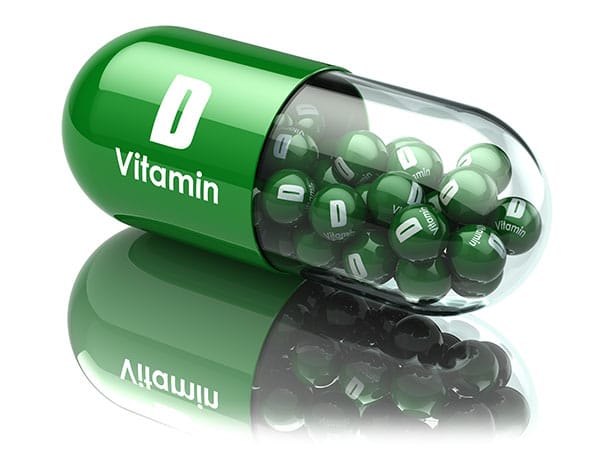
Everyday Chemicals Are Screwing Up Your Testosterone
You may have already read my other article on 7 habits which are killing your testosterone. There was a section in that on Water because

Vitamin D is often said to be a “hormone” rather than a vitamin but this may not be factually true.
According to Dr. Ronald Vieth, one of the most respected researchers on vitamin D in the world, it is a structural raw material which both hormones and pre-hormones are made from and it meets the strict definition of a vitamin.
If you like geeking out on this sort of thing, you can read more about it in Dr. Vieth’s landmark paper “Why Vitamin D is not a hormone”. (1)
However, this is still not without debate as some researchers insist D is a hormone. (2)
Whether or not you side with the researchers that claim it is a hormone or claim it is a vitamin, it plays an absolutely crucial role in several biological functions including testosterone production!
A deficiency of vitamin D may increase aromatization of testosterone to estrogen. Obviously if you are trying to maximize your testosterone levels this is a very bad thing.
We also know vitamin D deficiency is soaring in the United States in large part due to a lack of sun. In fact, deficiency could be as high as 77% according to one recent study. (3)
Just how crucial is vitamin D to maximizing your natural testosterone levels?
Human Case Study 1
One study found men with a deficiency have significantly lower testosterone levels and higher estrogen levels.
These men also had a higher percentage of body fat, less lean mass, higher rates of cardiovascular disease, more depression, and were less fertile than men with adequate levels of D. (4)
Human Case Study 2
In another study, men with low testosterone were supplemented with vitamin D and it was found to increase free testosterone levels by a whopping 20% and total and bioactive testosterone also increased! (5)
No difference in testosterone levels were seen in the placebo group so the researchers were able to clearly see the effects came directly from supplementation.
Natural sunlight is your best source of vitamin D.
Your body will naturally produce vitamin D when exposed to sunlight for a long enough period of time and this is by far the best way to get it!
However, determining exactly how much sunlight you need is rather difficult as there are a number of factors which come into play such as:
It’s no wonder that so many of us fall short of getting adequate D levels via sunlight absorption with our long work days, commute times, family responsibilities.
Not to mention its really tough to get midday, full body sunlight exposure in the summer, near the equator consistently!
Vitamin D is crucial to absorbing some minerals such as magnesium which is also on our list of best testosterone boosting supplements.
Interestingly magnesium will help your body make D more bioactive as well! (6)
Supplementing with boron is also crucial to maximizing your bodies ability to absorb vitamin D. (7)
Not surprisingly, both boron and magnesium have been shown to be very effective testosterone boosters as well!
Chances are pretty high you aren’t getting all of the sunlight you need each day to maximize your testosterone levels and the studies have proven its importance time and again.
While some people have gone crazy with their recommendations (upwards of 5,000 I.U. daily), I suggest you keep your supplementation in the moderate range between 400 IU and 2,500 IU daily.
That works out to 100% – 625% of the RDA (recommended daily intake) and is quite sufficient for most people to ensure you are getting all that your body requires to boost your testosterone.
Our natural testosterone booster, Force X7, delivers 1,000 I.U. of Vitamin D per serving plus magnesium and boron!
References:

You may have already read my other article on 7 habits which are killing your testosterone. There was a section in that on Water because

Rhodiola Rosea stands out as a potent adaptogenic herb with a rich history of traditional use and a growing body of scientific research. Revered for

In this comprehensive article, we will explore what L-tyrosine is, its benefits as a pre-workout supplement, the correct dosage, and other potential health benefits it

Betaine anhydrous is becoming an increasingly popular ingredient for pre-workouts. In this article, we will explore the fundamentals of betaine anhydrous, its connection to carnosine,

Beta-alanine is a pre-workout powerhouse. From boosting workout performance to potential anti-aging effects, discover why this amino acid is a favorite among health buffs.

You may have already read my other article on 7 habits which are killing your testosterone. There was a section in that on Water because

Rhodiola Rosea stands out as a potent adaptogenic herb with a rich history of traditional use and a growing body of scientific research. Revered for

In this comprehensive article, we will explore what L-tyrosine is, its benefits as a pre-workout supplement, the correct dosage, and other potential health benefits it
Discount Applied Successfully!
Your savings have been added to the cart.